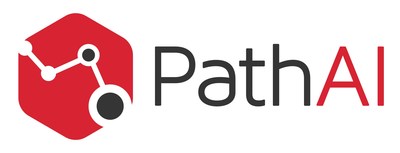PathAI, a global provider of AI-powered technology applied to pathology, today announced the presentation of new data describing improved digital assessment of nonalcoholic steatohepatitis (NASH) and primary sclerosing cholangitis (PSC).
|
BOSTON, June 24, 2021 /PRNewswire/ -- PathAI, a global provider of AI-powered technology applied to pathology, today announced the presentation of new data describing improved digital assessment of nonalcoholic steatohepatitis (NASH) and primary sclerosing cholangitis (PSC). These results will be presented at the International Liver Congress, June 23-26, 2021. PathAI's AI-based measurement of NASH (AIM-NASH) drug development tool (DDT) could enable accurate and reproducible assessment of clinical trial enrollment criteria and clinical trial endpoints, and increased sensitivity and statistical power for measuring response to treatment. The data builds upon PathAI's development of machine learning (ML)based approaches for quantification of liver pathology and identification of histological features relevant to disease progression and treatment. In a research collaboration with Gilead, models were trained to predict NASH Clinical Research Network (CRN) component scores measuring cytological ballooning, lobular inflammation, steatosis, and fibrosis. ML scoring of NASH CRN components and assessment of trial enrollment criteria and endpoints both were concordant with expert pathologist consensus scores, and showed perfect reproducibility across two reads. Moreover, retrospective analysis of clinical trial endpoints showed greater sensitivity and statistical power for measuring treatment effects, indicating the potential of the tool to increase clinical trial success. The AIM-NASH DDT has been accepted by the US Food and Drug Administration into the BioMarker Qualification Program. These results will be presented in full in the oral presentation "AI-based histological assessment of NASH (AIM-NASH): A drug development tool for assessing clinical trial endpoints" (OS-1611, June 24, 2021, 11:15-11:30am). The AIM-NASH drug development tool is based on the use of graph neural networks, which enabled modeling and accounting for systemic pathologist bias and the production of unbiased estimates for each whole slide image. Details on the ML model will be presented in the poster "Liver Biopsy Graph Neural Networks for Automated Histologic Scoring Using the NASH CRN System" (abstract #2123). Also through its collaboration with Gilead, PathAI reports a deep learning approach to evaluate clinical progression in individuals with primary sclerosing cholangitis (PSC), a chronic disease in which inflammation and blockage of bile ducts can result in severe liver damage. ML models were used to analyze magnetic resonance cholangiopancreatography (MRCP) images from individuals with PSC, and the ML MRCP score was shown to be superior to clinical parameters and other prognostic models in predicting PSC-related clinical events.These results will be presented in the poster "A Deep Learning Approach to Analysis of MRCP Images Predicts Clinical Events and Progression to Cirrhosis in Patients with Primary Sclerosing Cholangitis" (abstract #1644). These investigations demonstrate and continue to push forward PathAI's work in developing AI-powered tools for accurate, reproducible, and clinically relevant evaluation of liver pathology. About PathAI
SOURCE PathAI |





